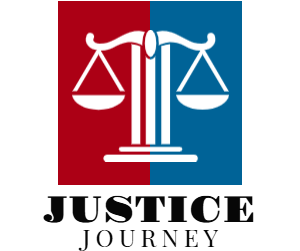Salem car accident lawyers near me can provide invaluable support after a car accident. Navigating the legal complexities and insurance claims can be overwhelming, especially when dealing with injuries and financial losses. Finding the right legal representation is crucial to ensure your rights are protected and you receive the compensation you deserve.
This guide aims to shed light on the legal landscape surrounding car accidents in Salem, Massachusetts, providing insights into the key factors to consider when choosing a lawyer, the importance of gathering evidence, and the process of negotiating with insurance companies. It also covers common car accident injuries, potential financial compensation, and valuable legal resources available in the area.
Understanding the Legal Landscape: Salem Car Accident Lawyers Near Me
Car accidents in Salem, Massachusetts, are governed by a complex legal framework. This framework involves a combination of state and federal laws, regulations, and court precedents. Understanding these legal principles is crucial for navigating the aftermath of a car accident and ensuring you receive the compensation you deserve.
Types of Negligence Claims
Negligence is the foundation of most car accident lawsuits. To prove negligence, you must demonstrate that the other driver owed you a duty of care, breached that duty, and that breach directly caused your injuries. Common types of negligence claims in car accidents include:
- Negligent Driving: This is the most common type of negligence claim, encompassing actions like speeding, distracted driving, driving under the influence, and failure to yield.
- Failure to Maintain Vehicle: If a vehicle’s malfunction, such as faulty brakes or malfunctioning lights, causes an accident, the owner or driver may be liable for negligence.
- Failure to Warn: In situations where a driver fails to warn other drivers of a hazard, such as a stalled vehicle or a sudden change in lane, they could be held liable for negligence.
Common Defenses Used by Insurance Companies
Insurance companies have several strategies to minimize their payouts or avoid liability altogether. Common defenses used in car accident lawsuits include:
- Comparative Negligence: This defense argues that the plaintiff was partially responsible for the accident, reducing the amount of compensation they can receive. For example, if a driver is found to be 20% at fault for an accident, their compensation would be reduced by 20%.
- Assumption of Risk: This defense claims that the plaintiff knew of the potential risks involved in the situation and voluntarily assumed those risks. For example, if a driver knowingly enters a construction zone, they may be held to have assumed the risk of an accident.
- Contributory Negligence: This defense argues that the plaintiff’s actions contributed to the accident, potentially barring them from recovering any compensation.
Choosing the Right Attorney
After a car accident, seeking legal guidance is crucial. Choosing the right car accident lawyer in Salem is a vital step in ensuring you receive the compensation you deserve. While many lawyers claim expertise in this area, selecting the right one requires careful consideration.
Experience and Expertise
Choosing an attorney with extensive experience and expertise in handling car accident cases is crucial. Experience provides lawyers with valuable insights into the intricacies of such cases, enabling them to effectively navigate complex legal procedures and negotiate favorable settlements.
- Experienced lawyers possess a deep understanding of the legal principles and precedents applicable to car accidents. This knowledge allows them to anticipate potential challenges, strategize effectively, and present compelling arguments on your behalf.
- Expertise in car accident cases includes familiarity with various types of accidents, such as rear-end collisions, head-on crashes, and intersection accidents. This understanding allows lawyers to tailor their approach to the specific circumstances of your case, ensuring your rights are protected.
- An experienced lawyer can effectively communicate with insurance companies, negotiate settlements, and represent you in court if necessary. They are well-versed in insurance policies, claims procedures, and litigation strategies, giving you a significant advantage in obtaining the compensation you deserve.
The Initial Consultation
The initial consultation is your opportunity to discuss your car accident case with a lawyer and learn more about your legal options. It’s a crucial step in the process, and it’s important to be prepared.
This meeting is a chance for you to share your story, ask questions, and gain valuable insights into your legal rights and potential outcomes.
What to Expect During the Consultation
During the consultation, the lawyer will likely ask you a series of questions to understand the details of your accident. Be prepared to provide information such as:
- The date, time, and location of the accident.
- A description of how the accident occurred, including the actions of all parties involved.
- The extent of your injuries and any medical treatment you’ve received.
- Any information you have about the other driver(s) involved, including their insurance information.
- Details about your vehicle damage, including any photographs or repair estimates.
- Your employment status and any lost wages due to the accident.
It’s also essential to bring any relevant documentation to the consultation, such as:
- Police reports.
- Medical records.
- Insurance policies.
- Photographs of the accident scene and vehicle damage.
- Any other relevant documents.
Asking Questions and Clarifying Concerns
The initial consultation is your opportunity to ask the lawyer any questions you have about your case. Don’t hesitate to ask about:
- The lawyer’s experience handling car accident cases.
- Their fee structure and payment options.
- The potential legal outcomes of your case.
- The timeline for resolving your case.
- Any other concerns you may have.
It’s important to feel comfortable and confident with the lawyer you choose. Ask questions, voice your concerns, and make sure you understand the process and potential outcomes.
Negotiating with Insurance Companies
After a car accident, dealing with insurance companies can feel overwhelming, especially when you’re injured and trying to recover. Insurance companies are businesses with a profit motive, and their goal is to minimize payouts. It’s crucial to understand their tactics and know how to effectively negotiate to get the compensation you deserve.
Common Insurance Company Tactics
Insurance companies employ various tactics to minimize payouts. Here are some common ones:
- Lowballing: Insurance adjusters often offer a settlement that is far lower than the actual value of your claim. They may downplay your injuries or the severity of the accident.
- Delaying Tactics: Insurance companies may delay the claims process, hoping you’ll give up or settle for less. They might request unnecessary documentation or claim that they need more time to investigate.
- Denying Liability: Insurance companies may try to deny liability for the accident, claiming it was your fault or that the other driver wasn’t insured. They may also argue that your injuries weren’t caused by the accident.
- Misrepresenting Policy Coverage: Insurance companies might misinterpret the terms of your policy, limiting your coverage or claiming you are not eligible for certain benefits.
- Pressuring You to Settle Quickly: Insurance adjusters may pressure you to settle quickly, often before you have fully recovered or understand the extent of your injuries and losses.
Strategies for Effective Negotiation
It’s essential to be prepared and proactive when negotiating with insurance companies:
- Document Everything: Keep detailed records of all communication with the insurance company, including dates, times, and names of individuals you spoke with. Take pictures of your injuries, the accident scene, and damaged property.
- Seek Medical Attention: Get a thorough medical evaluation from a qualified healthcare professional. This documentation will be crucial in establishing the extent of your injuries and losses.
- Gather Evidence: Collect any evidence that supports your claim, such as police reports, witness statements, and repair estimates.
- Know Your Policy: Review your insurance policy carefully to understand your coverage and limits. This will help you identify any potential issues or disputes with the insurance company.
- Don’t Settle Too Quickly: Don’t rush into a settlement until you have a clear understanding of your injuries, losses, and the value of your claim.
- Be Assertive but Polite: While it’s important to be assertive in advocating for your rights, it’s also essential to remain polite and professional throughout the negotiation process.
- Consult with an Attorney: An experienced car accident lawyer can provide valuable guidance and support throughout the negotiation process. They can help you understand your legal rights, negotiate with the insurance company on your behalf, and protect your interests.
Importance of Legal Representation
Having legal representation during negotiations with insurance companies is crucial for several reasons:
- Expert Negotiation Skills: Car accident lawyers are skilled negotiators with experience in dealing with insurance companies. They know their tactics and can effectively counter their arguments.
- Understanding Legal Rights: Lawyers can help you understand your legal rights and options, ensuring you are not taken advantage of by the insurance company.
- Protecting Your Interests: Lawyers act as your advocate, protecting your interests and ensuring you receive fair compensation for your injuries and losses.
- Negotiating a Favorable Settlement: Lawyers can help you negotiate a settlement that adequately covers your medical expenses, lost wages, pain and suffering, and other damages.
- Avoiding Legal Disputes: In some cases, insurance companies may refuse to settle fairly, leading to a lawsuit. A lawyer can represent you in court and fight for your rights.
Filing a Lawsuit
If you’ve been injured in a car accident and your claim with the insurance company isn’t going smoothly, you might need to consider filing a lawsuit. This can be a complex process, but an experienced attorney can guide you through it.
Here’s a breakdown of the steps involved in filing a car accident lawsuit.
Steps in Filing a Lawsuit
Before filing a lawsuit, it’s essential to understand the legal process and the potential outcomes.
Here are the key steps involved:
- File a Complaint: The first step is to file a complaint with the court, outlining your claims and the damages you’ve suffered. This document officially starts the lawsuit.
- Serving the Defendant: The complaint must be served on the defendant, which means delivering a copy to them. This officially notifies them of the lawsuit.
- Answer and Discovery: The defendant will respond to the complaint with an answer. This response will either admit or deny your claims. This phase also involves discovery, where both sides gather information through requests for documents, interrogatories, and depositions.
- Negotiation and Settlement: Even after a lawsuit is filed, there’s a good chance that a settlement can be reached before trial. Both sides may engage in negotiations to try and resolve the case outside of court.
- Trial: If a settlement isn’t reached, the case will proceed to trial. This is where evidence is presented to a judge or jury, who will ultimately decide the outcome of the case.
- Judgment: If the court finds in your favor, a judgment will be entered, and you will be awarded damages. The defendant may appeal this judgment.
Deadlines and Procedures
There are strict deadlines and procedures that must be followed in a lawsuit. These vary depending on the jurisdiction and the specific type of case.
- Statute of Limitations: Each state has a statute of limitations, which sets a time limit for filing a lawsuit. For example, in many states, you have two years from the date of the accident to file a lawsuit.
- Discovery Deadlines: There are deadlines for completing discovery, which is the process of gathering information.
- Trial Dates: Courts have schedules for setting trial dates, and there may be deadlines for filing motions or other documents.
Potential Outcomes
The outcome of a car accident lawsuit can vary depending on the circumstances of the case.
- Settlement: The most common outcome is a settlement, where both sides agree to resolve the case outside of court. This can be a faster and more cost-effective way to resolve a case.
- Trial: If a settlement isn’t reached, the case will proceed to trial. The outcome of a trial can be a verdict in your favor, a verdict in favor of the defendant, or a hung jury.
- Appeal: Either side can appeal a judgment if they believe the court made an error.
Common Car Accident Injuries
Car accidents can result in a wide range of injuries, from minor sprains to severe and life-altering conditions. Understanding the common injuries sustained in car accidents is crucial for seeking appropriate medical attention and pursuing legal action.
Whiplash
Whiplash is a common injury that occurs when the head is suddenly jolted back and forth, often due to a rear-end collision. This rapid movement can strain the muscles, ligaments, and tendons in the neck, leading to pain, stiffness, and headaches.
- Description: Whiplash involves a sudden, forceful extension and flexion of the neck, causing damage to the soft tissues in the neck region.
- Potential Complications: Whiplash can lead to chronic neck pain, headaches, dizziness, and even nerve damage.
- Long-Term Effects: In some cases, whiplash can cause long-term pain and disability, affecting daily activities and quality of life.
Back Injuries
Back injuries are another frequent consequence of car accidents, ranging from minor muscle strains to severe spinal fractures.
- Description: Back injuries can occur due to the sudden impact of the accident, causing strains, sprains, or even herniated discs.
- Potential Complications: Back injuries can lead to chronic pain, limited mobility, and nerve damage, requiring extensive medical treatment and rehabilitation.
- Long-Term Effects: Severe back injuries can cause permanent disability, affecting an individual’s ability to work and perform daily tasks.
Head Injuries
Head injuries can be particularly serious, ranging from mild concussions to severe brain damage.
- Description: Head injuries can occur due to impact with the steering wheel, dashboard, or windshield, causing concussions, skull fractures, or brain bleeds.
- Potential Complications: Head injuries can lead to cognitive impairment, memory loss, seizures, and long-term neurological problems.
- Long-Term Effects: Severe head injuries can result in permanent brain damage, requiring ongoing medical care and support.
Internal Injuries
Internal injuries, such as organ damage and internal bleeding, can occur due to the forces involved in a car accident.
- Description: Internal injuries can be caused by the impact of the accident, leading to damage to organs like the lungs, liver, or spleen.
- Potential Complications: Internal injuries can lead to shock, organ failure, and even death if not treated promptly.
- Long-Term Effects: Severe internal injuries can require extensive surgery and rehabilitation, leading to long-term health complications.
Fractures
Bone fractures are common in car accidents, particularly in the extremities, ribs, and pelvis.
- Description: Fractures can occur due to the impact of the accident, leading to broken bones in the arms, legs, ribs, or pelvis.
- Potential Complications: Fractures can lead to pain, swelling, and loss of function, requiring surgery and immobilization.
- Long-Term Effects: Some fractures can cause permanent damage, affecting mobility and overall function.
Soft Tissue Injuries
Soft tissue injuries, such as sprains, strains, and bruises, are also common in car accidents.
- Description: Soft tissue injuries involve damage to muscles, ligaments, tendons, and other soft tissues, causing pain, swelling, and bruising.
- Potential Complications: Soft tissue injuries can lead to chronic pain, stiffness, and limited mobility.
- Long-Term Effects: In some cases, soft tissue injuries can cause long-term pain and disability, impacting daily activities.
Financial Compensation
If you’ve been injured in a car accident, you’re likely facing a lot of challenges, including medical bills, lost wages, and pain and suffering. In addition to dealing with the physical and emotional consequences of the accident, you may also be wondering about your financial recovery. Fortunately, you may be entitled to compensation for your losses. A Salem car accident lawyer can help you understand your legal rights and pursue the compensation you deserve.
Types of Damages
In a car accident lawsuit, you can seek compensation for various types of damages, both economic and non-economic.
- Economic damages are quantifiable financial losses you have incurred due to the accident.
- Non-economic damages are intangible losses that are more difficult to quantify.
Economic Damages
Economic damages are tangible losses that can be calculated and documented. They represent the financial costs you’ve incurred as a direct result of the accident.
- Medical Expenses: This includes all costs related to your treatment, such as hospital stays, doctor visits, medications, physical therapy, and any other medical services you received.
- Lost Wages: If you were unable to work due to your injuries, you can claim lost wages for the time you missed work. This includes both your regular salary and any bonuses or commissions you lost.
- Property Damage: If your vehicle was damaged in the accident, you can claim compensation for the cost of repairs or replacement.
- Future Medical Expenses: If you are expected to need ongoing medical care due to your injuries, you can claim compensation for these future expenses. This may include ongoing therapy, medication, or assistive devices.
- Future Lost Wages: If your injuries prevent you from returning to your previous job or earning the same income, you can claim compensation for future lost wages.
Non-Economic Damages
Non-economic damages are intangible losses that are harder to quantify but are still real and significant. They represent the impact the accident has had on your life beyond financial losses.
- Pain and Suffering: This includes the physical pain, emotional distress, and mental anguish you have experienced due to your injuries.
- Disfigurement: If your injuries have caused scarring or other disfigurement, you can claim compensation for this.
- Loss of Consortium: If your injuries have affected your ability to enjoy a normal relationship with your spouse or partner, you can claim compensation for this loss.
- Loss of Enjoyment of Life: This refers to the reduction in your ability to engage in activities you enjoyed before the accident. This can include hobbies, sports, or other leisure activities.
Factors Influencing Compensation
Several factors can influence the amount of compensation you receive in a car accident lawsuit.
- The severity of your injuries: The more severe your injuries, the more compensation you are likely to receive.
- The extent of your economic damages: The higher your medical expenses, lost wages, and property damage, the more compensation you are likely to receive.
- The negligence of the other driver: If the other driver was clearly at fault, you are more likely to receive a favorable settlement or verdict.
- Your own negligence: If you were partially at fault for the accident, your compensation may be reduced or denied.
- The insurance policy limits: The amount of coverage available under the other driver’s insurance policy will also play a role in determining your compensation.
- The jurisdiction where the accident occurred: Different states have different laws governing car accident lawsuits, which can affect the amount of compensation you are entitled to.
Negotiating with Insurance Companies
Insurance companies are often reluctant to pay fair compensation to accident victims. They may try to downplay your injuries, deny your claims, or offer a low settlement. It is essential to have a skilled Salem car accident lawyer on your side to negotiate with the insurance companies and protect your rights.
Legal Resources in Salem
Navigating the legal landscape after a car accident can be overwhelming, especially if you’re unfamiliar with the available resources. Salem offers a range of legal resources specifically designed to support car accident victims. Understanding these resources can empower you to make informed decisions and protect your rights.
Legal Aid Organizations
Legal aid organizations in Salem provide free or low-cost legal assistance to individuals who cannot afford private attorneys. These organizations offer a range of services, including legal advice, representation in court, and assistance with negotiating with insurance companies.
- Legal Aid Services of Oregon (LASO)
- Contact Information: (503) 227-1655
- Services Offered: Provides legal assistance to low-income individuals in civil matters, including car accident claims.
- Multnomah Bar Foundation
- Contact Information: (503) 228-8800
- Services Offered: Offers legal aid programs, including a referral service for attorneys who provide pro bono (free) legal assistance.
Government Agencies
Government agencies play a crucial role in providing support and guidance to car accident victims. They offer resources such as information about accident reporting, insurance claims, and legal rights.
- Oregon Department of Transportation (ODOT)
- Contact Information: (503) 988-5000
- Services Offered: Provides information about traffic laws, accident reporting procedures, and driver safety.
- Oregon Department of Insurance
- Contact Information: (503) 947-7700
- Services Offered: Offers information about insurance claims, consumer rights, and dispute resolution processes.
Local Courts
Understanding the court system is essential for car accident victims who may need to file a lawsuit. Local courts handle civil cases, including car accident claims.
- Marion County Circuit Court
- Contact Information: (503) 588-5000
- Services Offered: Handles civil cases, including personal injury claims arising from car accidents.
Additional Resources, Salem car accident lawyers near me
In addition to the above, several other resources can assist car accident victims in Salem.
- Salem Public Library: Offers access to legal databases and resources, including online legal research tools.
- Consumer Reports: Provides information about car safety, insurance, and consumer rights.
- National Highway Traffic Safety Administration (NHTSA): Offers information about vehicle safety, recalls, and accident statistics.
FAQs and Answers
It is natural to have questions after a car accident, especially if you are dealing with injuries or legal matters. This section will address some frequently asked questions about car accidents and legal representation in Salem, Oregon.
What Happens After a Car Accident?
After a car accident, it’s important to prioritize your safety and well-being. Here are some immediate steps:
- Check for injuries: Assess yourself and any passengers for injuries. If anyone is injured, call 911 immediately.
- Move to a safe location: If possible, move your vehicle to a safe location away from traffic. If it’s not safe to move, turn on your hazard lights.
- Exchange information: Get the other driver’s name, contact information, insurance company, and policy number. Also, record the license plate number and vehicle description.
- Take photos and videos: Document the accident scene by taking pictures and videos of the damage to your vehicle, the other vehicle, and the surrounding area.
- Report the accident: Contact your insurance company and file a police report.
- Seek medical attention: Even if you don’t feel injured, it’s important to get checked out by a doctor. Some injuries may not be apparent immediately.
What Should I Do if I’m Injured in a Car Accident?
After a car accident, your health and well-being are paramount. Here are the crucial steps to take:
- Seek medical attention: Go to the emergency room or a doctor’s office as soon as possible to get checked out. Even if you don’t feel injured, it’s important to have a medical professional evaluate you. This will create a record of your injuries and treatment, which can be important for your legal claim.
- Keep detailed records: Maintain a log of your injuries, treatment, and any limitations or pain you experience. This will help you document the impact of the accident on your life.
- Follow your doctor’s instructions: It’s crucial to follow your doctor’s recommendations for treatment and recovery. This demonstrates your commitment to healing and can be important evidence in your case.
- Don’t talk to the other driver’s insurance company: Insurance companies are businesses with a goal of minimizing their payouts. Before speaking with the other driver’s insurance company, consult with a lawyer. They can help you understand your rights and avoid saying anything that could harm your case.
Do I Need a Lawyer After a Car Accident?
While not always necessary, a lawyer can significantly benefit you in a car accident case. Here’s why:
- Understanding your legal rights: A lawyer can help you understand your rights and options after a car accident, including your right to compensation for medical expenses, lost wages, pain and suffering, and other damages.
- Negotiating with insurance companies: Insurance companies are known for trying to settle claims for less than they are worth. A lawyer can help you negotiate a fair settlement that covers all of your damages.
- Filing a lawsuit: If you cannot reach a fair settlement with the insurance company, a lawyer can help you file a lawsuit to recover your damages.
- Protecting your interests: A lawyer can help you navigate the legal system and protect your interests throughout the process.
What Should I Ask a Lawyer During the Initial Consultation?
When meeting with a car accident lawyer, ask questions to determine if they are the right fit for you. Here are some key inquiries:
- Experience with car accident cases: Ask about their experience handling car accident cases similar to yours.
- Fees and payment structure: Understand their fees and how they are calculated. Most lawyers work on a contingency fee basis, meaning they only get paid if they win your case.
- Communication and availability: Ask about their communication style and how often they will update you on your case.
- Client testimonials and references: Ask for references from previous clients. This can give you an idea of their track record and how they treat their clients.
What If I’m at Fault for the Accident?
Even if you are partially at fault for the accident, you may still be entitled to compensation. This is called “comparative negligence.” In Oregon, you can recover damages even if you are partially at fault, as long as you are less than 50% responsible.
What Should I Do If the Other Driver Doesn’t Have Insurance?
If the other driver is uninsured or underinsured, you may be able to file a claim with your own insurance company under your uninsured/underinsured motorist coverage. However, the amount of coverage you have will determine how much you can recover.
What Happens If the Other Driver Leaves the Scene?
If the other driver leaves the scene of the accident, you should immediately call the police. This is considered a hit-and-run, which is a criminal offense. The police will investigate the incident and may be able to identify the driver.
How Long Do I Have to File a Lawsuit?
In Oregon, you have two years from the date of the accident to file a lawsuit. This is called the statute of limitations.
What If I’m Offered a Settlement?
If the insurance company offers you a settlement, it’s important to carefully consider it before accepting. A lawyer can help you evaluate the offer and determine if it is fair.
Can I Get My Lost Wages Recovered?
Yes, you may be able to recover lost wages if you were unable to work due to your injuries. You will need to provide documentation of your lost wages, such as pay stubs or tax returns.
How Long Will My Case Take?
The length of time it takes to resolve a car accident case can vary depending on the complexity of the case, the insurance company’s response, and other factors. However, a lawyer can give you a general idea of the timeline.
What Are Some Tips for Preventing Car Accidents?
Preventing car accidents is a priority for everyone. Here are some tips:
- Drive defensively: Be aware of your surroundings and anticipate potential hazards.
- Avoid distractions: Put away your phone and avoid other distractions while driving.
- Maintain your vehicle: Regularly check your tires, brakes, lights, and other vehicle components.
- Obey traffic laws: Follow the speed limit, stop at red lights and stop signs, and use your turn signals.
- Get enough rest: Don’t drive if you are tired or sleepy.
- Be aware of weather conditions: Drive cautiously in bad weather and adjust your speed accordingly.
In the aftermath of a car accident, seeking legal guidance from experienced Salem car accident lawyers near me can make a significant difference in protecting your rights and securing a favorable outcome. Understanding the legal process, gathering evidence, and negotiating with insurance companies effectively are crucial steps in navigating this complex situation. Remember, seeking legal counsel is an investment in your well-being and can help you achieve the justice you deserve.
If you’re looking for Salem car accident lawyers near me, it’s important to find someone experienced in handling these types of cases. Similar to searching for cincinnati car accident lawyers near me , you’ll want to find someone who understands the local laws and procedures. A Salem car accident lawyer can help you navigate the complexities of your case and fight for the compensation you deserve.
Finding a skilled car accident lawyer is crucial after an accident. If you’re in Salem, Oregon, there are several experienced lawyers who can help you navigate the legal complexities. You might also want to consider reaching out to car accident lawyers near me anaheim , especially if you have connections to the Anaheim area. Regardless of your location, a good lawyer can help you secure fair compensation for your injuries and damages.
If you’re looking for Salem car accident lawyers near me, it’s important to find someone experienced and dedicated to getting you the compensation you deserve. Similar to finding the best car accident lawyers near me Atlanta GA , you’ll want to consider factors like their track record, communication style, and understanding of local laws. A Salem car accident lawyer can help you navigate the complexities of your case and fight for the best possible outcome.





